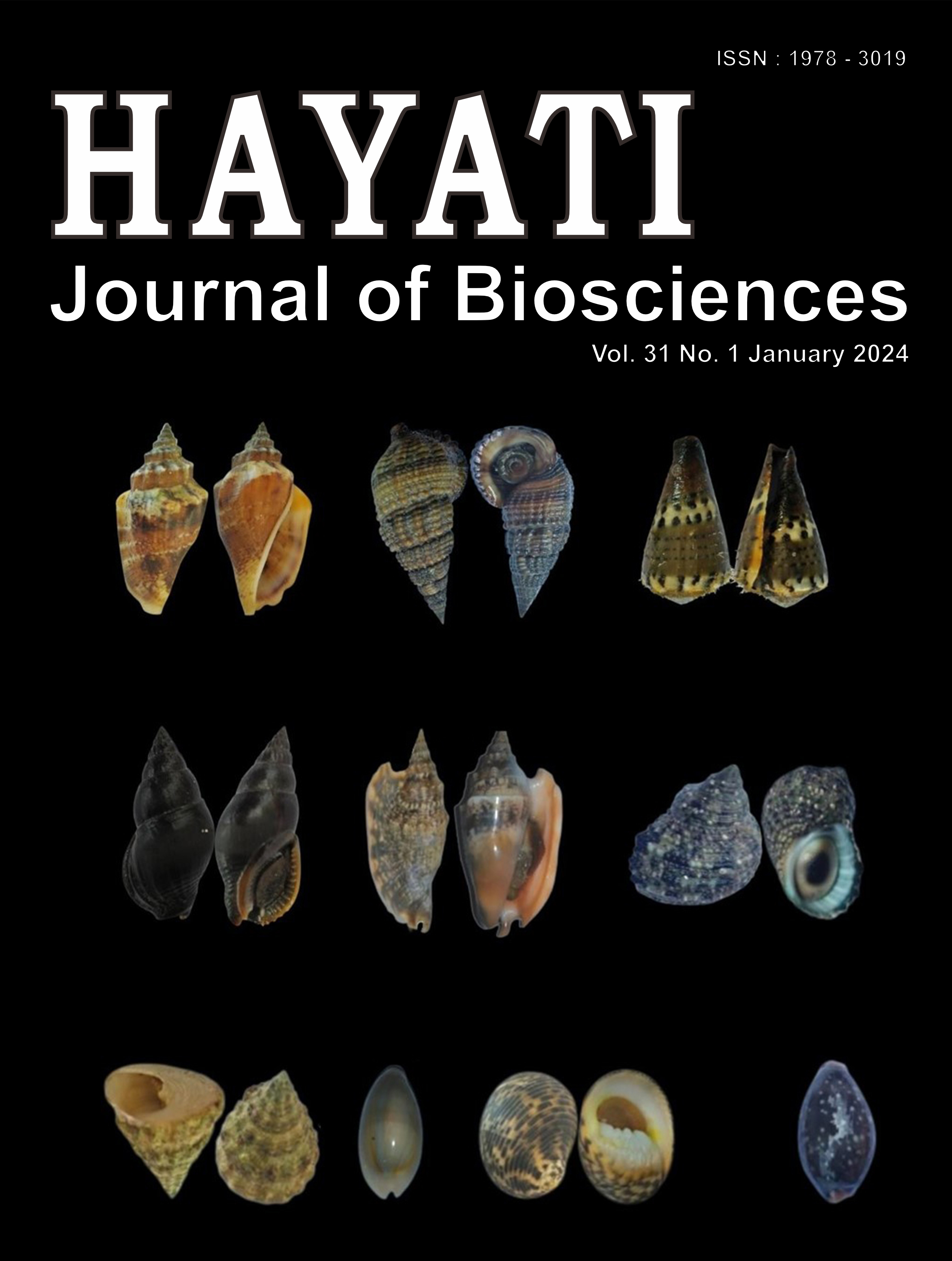Study of Antihypertensive Activity from Red Quinoa Seed Protein Hydrolysate Digested by Various Protease Enzymes
Abstract
Proteolytic enzymes are widely used to produce protein hydrolysates that contain bioactive peptides. Some of bioactive peptides are known inhibit the angiotensin-I-converting enzyme (ACE, EC 3.4.15.1) and act as human antihypertensive. Therefore, this study aims to produce protein hydrolysates via 16 hours of digestion process using Chenopodium formosanum (red quinoa) seed and the proteases, namely pepsin, trypsin, α-chymotrypsin, and thermolysin. The hydrolysates profiles and ACE-I inhibitory activity were analyzed using reversed phase-high performance liquid chromatography (RP-HPLC). The SDS-PAGE was also used to analyze the main storage protein in red quinoa seed, identified as being 11S seed storage globulin. Meanwhile, the ACE inhibitor activities of red quinoa seed protein (RQSP) produced by various proteases include the hydrolysate of pepsin 17.03% ± 3.88%, trypsin 42.67% ± 3.19%, α-chymotrypsin 72.71% ± 2.85% and thermolysin 77.67% ± 0.98%. These results show that red quinoa seed protein is a potential source of significant ACE inhibitor activity when hydrolyzed with α-chymotrypsin and thermolysin.
Downloads
Copyright (c) 2023 Dininurilmi Putri Suleman, Harijono, Jue-Liang Hsu

This work is licensed under a Creative Commons Attribution-NonCommercial 4.0 International License.
HAYATI J Biosci is an open access journal and the article's license is CC-BY-NC. This license lets others distribute, remix, tweak, and build upon author's work, as long as they credit the original creation. Authors retain copyright and grant the journal/publisher non exclusive publishing rights with the work simultaneously licensed under a https://creativecommons.org/

























.png) IPB University
IPB University Department of Biology
Department of Biology The Indonesian Biological Society
The Indonesian Biological Society 

